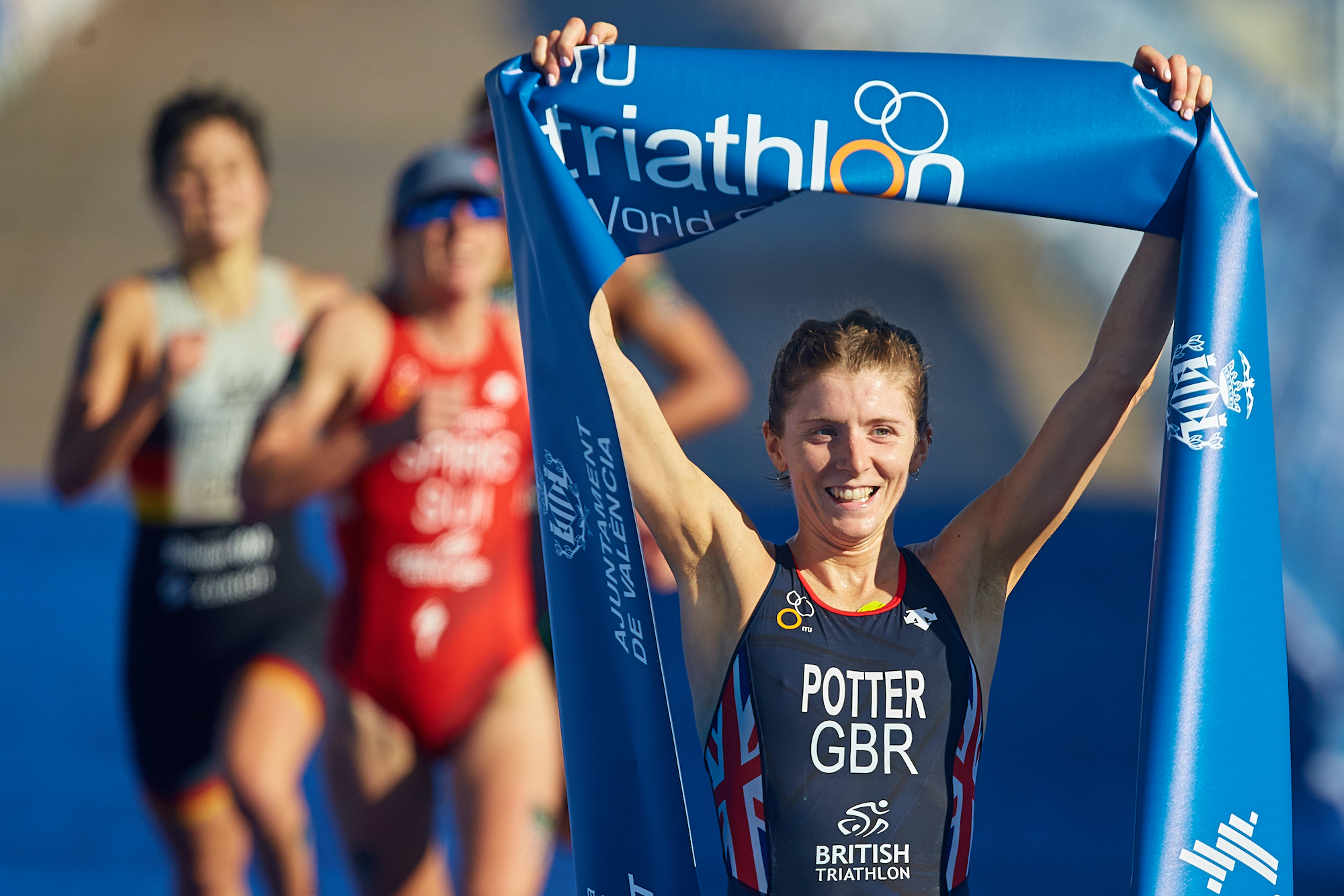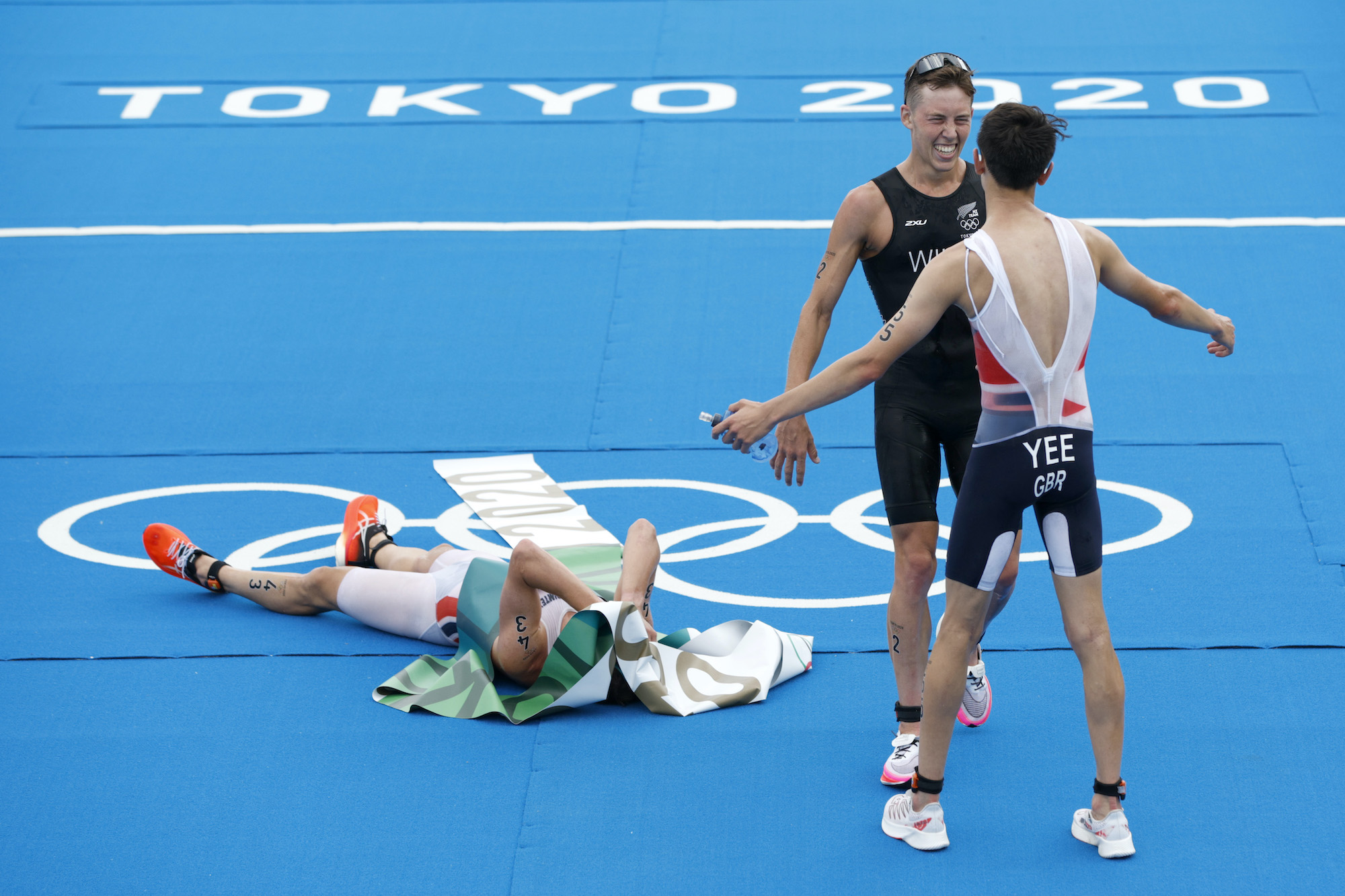Commonwealth Games 2022: Our predictions for the triathlon events
The 2022 Commonwealth Games have almost arrived, but who's most likely to be taking home the medals? 220 columnist Tim Heming makes his predictions...

Triathlon will not only be the first medal event at Birmingham 2022, but given the calibre of the triathletes competing it’s also one of the most hotly anticipated.
Traditional triathlon powerhouses Australia, New Zealand, Canada and South Africa will match-up against the four home nations over the sprint distance in individual competition at Sutton Park on Friday 29 July, with the mixed relay two days later on Sunday 31 July.
It will be the third time swim, bike, run has featured in the Commonwealth Games on British soil after its debut in Manchester in 2002, and Glasgow in 2014 (where Alistair Brownlee reigned supreme). It will also be the second time the sprint distance format of a 750m swim, 20km cycle leg and 5km run has been used following the Gold Coast four years ago.
Paratriathlon – also over the sprint distance – will again be showcased. It made its Commonwealth bow in 2018 when it was represented by the wheelchair classes, and this time it is the visually impaired division that takes centre stage.
Among the star attractions will be Olympic champions Flora Duffy, Georgia-Taylor-Brown and Alex Yee, but while they might start as strong favourites, there are likely to be some twists along the way. Here we look at the five events, assess which athletes might be to the fore, and make some predictions.
Who will win the women’s race?

Not for the first time, Olympic and Commonwealth champion, Flora Duffy, looks to have timed her form to perfection running into a major championship.
A World Series win in Hamburg at the start of the month kept Duffy in with a chance of retaining her world title, and while she might now be 35, the 2018 Gold Coast champ is showing no sign of letting up. Expect Duffy to push hard from the start and look to splinter the small field to distance many of her rivals.
The Bermudian’s toughest challenge is likely to come from England’s unflappable Georgia Taylor-Brown. The individual Olympic silver medallist leads the World Series rankings with wins in Yokohama and Montreal and – as she showed in Tokyo when recovering from a late puncture on the bike – she isn’t fazed by the big occasion.
But there are other contenders too. GTB’s England team-mate England’s Sophie Coldwell is a firm medal prospect who was on the podium in the WTCS Leeds last month for the second consecutive year. Unlike Taylor-Brown, Coldwell also has Commonwealth Games experience after a sixth-placed finish in 2018.
So too does Beth Potter, but while the Scot was 12th on Gold Coast, she was new to triathlon in 2018 and has since improved every year to become a real threat on the world stage. Fifth in Leeds, third in Montreal and second in Hamburg in her last three WTCS races show that Potter has developed the swim and bike to go with an already formidable run.

Outside those four, England’s third pick Sian Rainsley is another top 10 WTCS performer, and showed her mixed relay prowess in Hamburg a fortnight ago by helping a young Team GB to victory.
Wales’s Non Stanford, the 2013 world champion, will start as something of an unknown quantity having not competed this year, and in what could be her final major championship has extra incentive with something of a homecoming having studied at University of Birmingham.
Stanford’s team-mate Liv Mathias is another young British star who has World Series experience and impressed this year with a string of European Cup podiums.
New Zealand and particularly Australia are traditionally strong, but their triathletes are an outside chance for medals at best. As one of the quickest swimmers in the sport, Aussie Natalie Van Coevorden will look to benefit from any early breakaways on the bike.
New Zealand’s Nicole van der Kaay was seventh in Gold Coast and also worth a mention is fellow Kiwi Andrea Hansen, who as Andrea Hewitt placed fourth in Glasgow in 2014. Now aged 40, to be still competitive in sprint distance racing is quite some feat.
Prediction
- Flora Duffy (Bermuda)
- Georgia Taylor-Brown (Great Britain)
- Beth Potter (Scotland)
Who will win the men’s race?

Mirroring the current World Triathlon Championship Series, the men’s competition in Birmingham looks like a straight fight between two in-form athletes, Hayden Wilde of New Zealand and England’s Alex Yee.
Currently the two standout short course male triathletes in the world, they are developing a rivalry that could takes them through to Paris 2024 and beyond.
Yee defeated Wilde in Yokohama and Montreal this summer, while Wilde was victorious in Leeds and Hamburg. The two locked horns in the Arena Games final in Singapore in May, where Wilde won the stage ahead of Yee, but the Englishman took the overall title.
The two were also only separated by one place on last year’s Olympic rostrum as Yee picked up silver to Wilde’s bronze.
Yee’s slightly superior footspeed might just give the Londoner the edge here. He wasn’t on the start-line in Hamburg and crashed out in Leeds in an incident that Wilde took responsibility for post-race. While both are friends, it adds a little edge.

Behind them both the reigning Commonwealth champion Henri Schoeman of South Africa and silver medallist Jake Birtwhistle of Australia have been selected for Birmingham, but neither come in with the form to suggest they can repeat the heroics of Gold Coast.
Schoeman has struggled with illness and injury and since pulling out of the race in Tokyo last summer hasn’t competed on the world stage. Birtwhistle’s best finish in the World Series this year has been 14th – well down on his race-winning achievements of the past.
Perhaps a bigger threat from the Australians will come from Matt Hauser. The 2017 world junior champion finished a career-best second in the Hamburg WTCS behind Wilde and went on to post the fastest split in the following day’s mixed relay. Having missed a Commonwealth individual medal by 2sec four years ago, he’ll be keen to go one place better this time.
England have selected Sam Dickinson and Dan Dixon as a late replacement for the injured Jonny Brownlee. It’s likely that Dickinson will be tasked with supporting Yee, and 20-year-old Dixon – last year’s British sprint champion – has little pressure on him. Given he was selected ahead of Barclay Izzard and Tom Bishop, it suggests the selectors rate Dixon’s potential.
Scotland will be represented by Cameron Main and Grant Sheldon, both hoping to emulate what the now-retired Mark Austin achieved in 2018, when winning bronze on Gold Coast.
Elsewhere, don’t rule out Canada’s Tyler Mislawchuk, an experienced performer on the World Series and looking to regain the form that saw him win the Tokyo Olympic test event in 2019.
Predictions
- Alex Yee (England)
- Hayden Wilde (New Zealand)
- Matt Hauser (Australia)
Who will win the mixed relay?

The women will take on the anchor leg for the first time in a triathlon mixed team relay at a major championship – a ruling that will hold through to Paris 2024.
Team England, with Olympic relay gold medallists Yee and Taylor-Brown to turn to, will start as heavy favourites, and be able to field a strong quartet no matter which of the six individual athletes start.
Defending champions Australia remain a threat. Hauser, alongside Birtwhistle or Brandon Copeland offer quality on the men’s side, although whoever is chosen from Charlotte McShane, Sophie Linn or Van Coevorden will be hard-pressed to compete with the English women over the 300 metre swim, 5km cycle and 2km run.
New Zealand have strong claims to at least match their bronze from four years ago. Three of that team are still competing, including Van der Kaay, Tayler Reid and the evergreen Hansen.
With the addition of Wilde they cannot be discounted. Canada also have an outside medal shot with the emergence of talent such as Charles Paquet and Emy Legault to support Mislawchuk.
As for the other home nations, Scotland will compete for a medal as long they are still in contention when Potter, presumably, is unleashed on the anchor leg. Much will rest on the young shoulders of Sophia Green and Cameron Main.
Wales have strong women in Non Stanford and Liv Mathias, but may not have the strength on the men’s side.
Predictions
- England
- New Zealand
- Australia
Who will win the paratriathlon PTVI event?

Men
World-ranked No 1 England’s Dave Ellis and guide Luke Pollard go in as firm favourites but, as last year in the Tokyo Paralympics showed, nothing can be taken for granted. As reigning world champions with gold medal ambitions, the pair suffered a race-ending mechanical on the bike.
If redemption does come in Birmingham then their closest challengers are likely to be fellow British pair Oscar Kelly and guide Charlie Harding. The exciting duo are both on the British Triathlon talent pathway and have youth on their side. Kelly will turn 19 in the run-up to the event, Harding is just a year older.
Elsewhere the scrap for the final podium position could come from anywhere in the field. Australia’s Jonathan Goerlach, who will be guided by David Mainwaring, is world-ranked No 5.
Alongside Ellis, Goerlach was the only PTVI athlete from the Commonwealth to compete in Tokyo. In Birmingham he’ll have Sam Harding and 52-year-old Gerrard Gosens – who competed in the 1996 Atlanta Paralympics in goalball – for company.
Wales have the two Rhys’s, Jones guided by James, but an England clean sweep of the medals shouldn’t be completely ruled out. Iain Dawson and guide Duncan Shea-Simonds might be at the other end of their careers to Kelly and Harding but have a wealth of triathlon experience.
Predictions
- Dave Ellis (England)
- Oscar Kelly (England)
- Jonathan Goerlach (Australia)
Women

Scotland’s Alison Peasgood is the triathlete to beat in the women’s PTVI class. The 2016 Paralympic silver medallist will be reunited with Hazel MacLeod, her guide from Rio as they try to strike gold.
Peasgood was guided by Nikki Bartlett when they just missed out on the medals in finishing fourth in Tokyo last year, but the duo did finish ahead of the best of the rest of the Commonwealth, Canada’s Jessica Tuomela and Australia’s Katie Kelly.
Tuomela was fifth in Tokyo and is on the start-list, although the time advantage – known as factoring – she is given as a more severely visually impaired athlete been reduced for 2022. Kelly isn’t competing in Birmingham, with Australia pinning hopes on Erica Burleigh, who will be guided by Felicity Cradick.
The experienced Melissa Reid has withdrawn, leaving fast-improving Katie Crowhurst from Maidenhead as England’s sole representative. The 18-year-old moved from swimming to paratri last year and will be guided by Jess Fullager, who placed third in the junior world championship in Lausanne in 2019 before switching allegiance to GB.
Northern Ireland’s MacCombe twins, Chloe and Judith, don’t just have other nations to target, they can also throw sibling rivalry into the mix. World-ranked No 7, Chloe currently has the edge on her sister, finishing second to Judith’s third recently in Spain behind Paralympic champion Susana Rodriguez.
Predictions
- Alison Peasgood (Scotland)
- Jessica Tuomela (Canada)
- Katie Crowhurst (England)
Top image credit: Cameron Spencer/Getty Images




